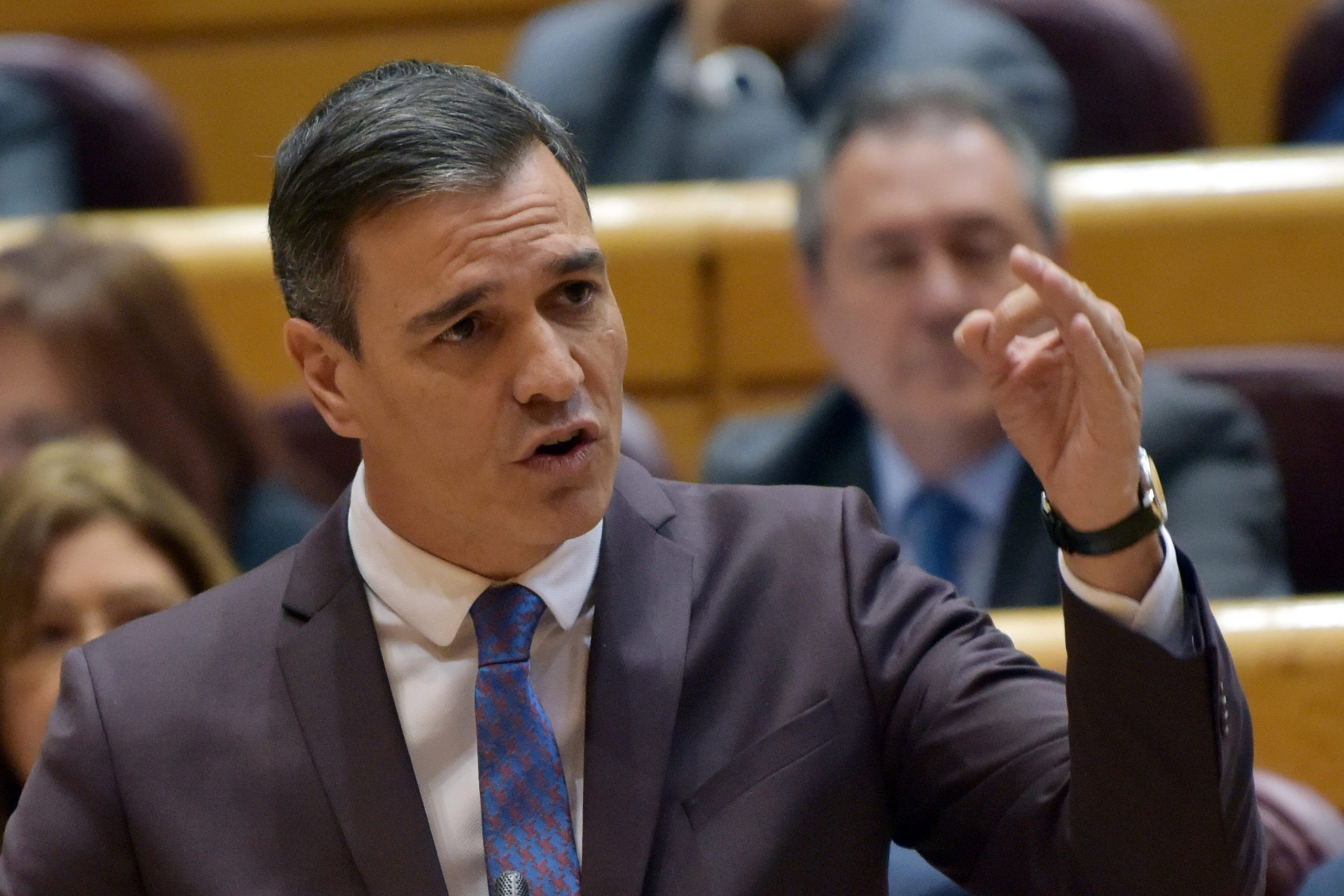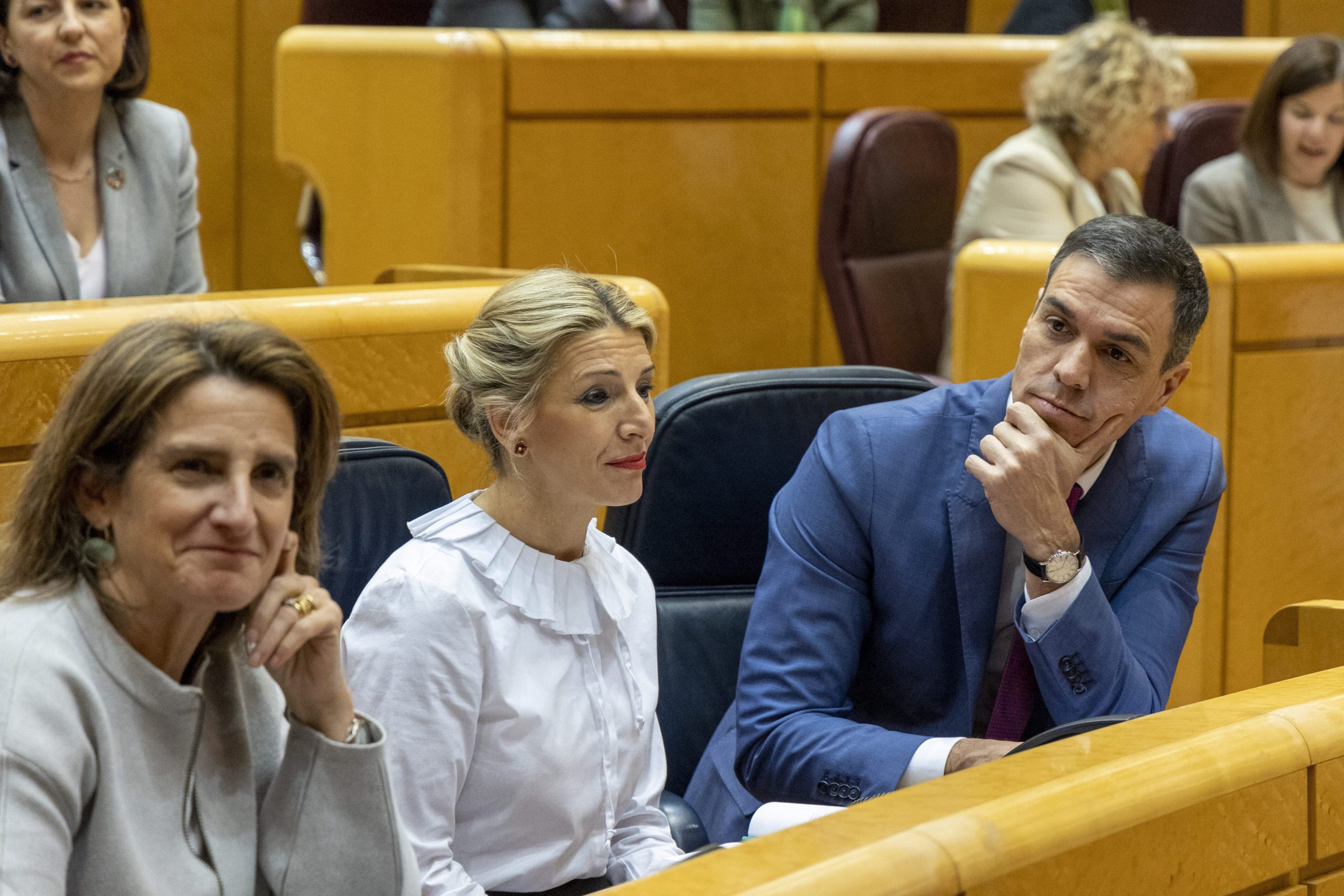‘GROTESQUE’, a ‘humiliation’, a ‘dishonour’, and farcical. Those were just some of the adjectives used by the leader of Spain’s main opposition Partido Popular (PP), Alberto Nuñez Feijoo, after the events in Spanish parliament on Wednesday, which saw the Socialist-led government scrabbling around for support to pass four decrees.
The marathon 12-hour session – which took place in the Senate rather than Congress, which is being refurbished – could be a taste of things to come in Spain’s fragmented parliament.
After the inconclusive July 23 general election, Socialist Party leader Pedro Sanchez managed to secure the support of his now-coalition partner, leftist alliance Sumar, as well as a series of other parties – including nationalist parties such as Catalan separatist groups Junts per Catalunya and the ERC (Catalan Republican Left) – to be voted back into office.
The problem now is that to get things done, Sanchez must rally the support of all of these parties, given that the Socialists and Sumar lack a working majority in Congress.
Both the PP and far-right Vox were hoping that Sanchez would fail at this first hurdle in parliament on Wednesday, and not be able to find this support less than two months after having been voted back into power with the backing of eight different groups.

Up for debate on Wednesday were decrees that included an extension to the measures the government put in place to assist Spaniards with the cost-of-living crisis, an increase in pensions, free public transport and a rise in employment benefits.
Junts’ speeches during the session suggested that the party was going to vote against the decrees, but the separatist group managed to secure a series of commitments from the central government, including transferring powers covering immigration from Madrid to the regional government.
Having achieved these concessions and after 12 hours of debate, Junts deputies opted not to vote, which worked as an abstention, and saw three of the decrees pass by 172 votes to 171, a margin of just one vote in the 350-seat chamber.
The second decree, however, covering unemployment benefits, was blocked by Podemos and failed to pass.
The leftist party, which was a coalition partner in the previous Socialist Party-led administration, was on the side of some unusual bedfellows, the PP, Vox and the small Navarre party UPN, in voting down the measure.
The decree would have seen monthly unemployment benefits rise from €480 to €570 for the first six months, and then €540 for the next six months.
Podemos said that it opposed the measures due to a technicality over social security contributions, but critics accused the party of blocking the decree due to its conflict with the leader of Sumar and the sponsor of the unemployment decree, Yolanda Diaz.
Sumar is a new leftist coalition headed by Diaz, who is one of Spain’s deputy prime ministers and the labour minister. Podemos ran under the Sumar ticket for the July 23 election, but in December it broke away from the party after none of its members were picked for Sanchez’s new Cabinet.

Since then, relations between Diaz and Podemos leader Ione Belarra have been at an all-time low, according to observers.
“It’s incredibly irresponsible,” Diaz told radio network Onda Cero about Podemos’s actions. “They have voted with the right and the far right.”
Meanwhile, PP leader Feijoo slammed the day of negotiations in the Senate and the splits between the parties that backed Sanchez for prime minister.
“If I had known that politics was like this, I wouldn’t have dedicated my life to it,” he told reporters on Wednesday. “My country doesn’t deserve this misrule, this dishonour, the government has made a fool of itself bartering with the rights of all Spaniards.”

Going forward, the government will need the votes of the five deputies from Podemos, something it no longer has guaranteed, and Junts also made good on its promises on Wednesday that it will not easily lend its support to Sanchez, and will look at each decree or bill on a case-by-case basis.
Members of the government told Spanish daily El Pais that the events of Wednesday could be a turning point, given that such a dramatic and long-drawn-out parliamentary session cannot happen every time legislation is passed.
But for now, barring any major changes, that could be exactly what Spaniards will see on the nightly news every time a new decree or bill is debated in Congress.
Read more:
- Spain’s Socialist Party files lawsuit after far-right protestors hanged and beat effigy of Prime Minister Pedro Sanchez
- Spain’s new government at risk, as five Podemos deputies break away from coalition partner Sumar
- King Felipe of Spain defends his country’s constitution as he opens Congress after months of political deadlock
Click here to read more News from The Olive Press.








